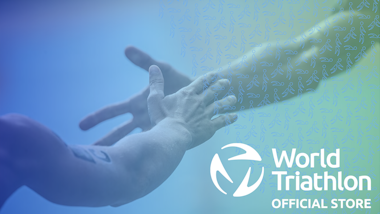Happy 200th World Cup
28 May, 2008
By: Chris Hill
The International Triathlon Union celebrated its 200th world cup in Madrid on the weekend. Its been a long road with some bumps and windy bits, but looking back, the trip also yields many a grand memory.
So perhaps its a good time to pause Olympic Odyssey with just less than three months to go before the ITU brings us to another Olympic triathlon and reflect on the races that get athletes there in the first placeworld cups.
This should not be read as a definitive list of the most and least successful world cups, just the most memorable to this writer; the musings of an athlete who raced on the world cup circuit for a time.
World Cup: Japan
Japanese world cups are like pieces of art. In equal parts, they are unique, beautiful and a little kooky. Every Japanese world cup starts with the aim to be the best race ever staged. When this goal is not achieved, as it never can be, it merely assumes the lesser standardperfection.
This perfection always produces something sublime as well as ridiculous.
For instance, no one can stage a world cup like the Japanese if the measure is precision. No number of waist-high red cones are enough to mark out a straight line and no rule is too small to prosecuteeven wetsuit thickness was measured with clamps in the early days.
Though the Japanese world cup officialdom may be a little stuffy regarding the rules on race day, this orderly outlook was always replaced with the most dramatic post-race personality change ever. An example of this was the famous Japanese karaoke parties that partied their way into the early hours of the next day.
The athletes always seemed to catch on to the zaniness as well, engaged in high jinx of their own. During an early incarnation of the Gamagori World Cup, a member of ITU staff, in the rooftop dining room of the Gamagori Inn, stressed that he did not want a repeat of the year before where fireworks were purchased from the local store and shot into the night.
As he concluded his fine speech a certain Hong Kong triathlete with the initials B.B. let off a cracker from the car park that shot up the 20 odd floors in an instant, sailing past the window and this particular ITU staff members turned back. He swung around to see what had dropped everyone to the floor in hysterics, but the cracker delightfully had already assumed its downward trajectory and was out of sight.
World Cup: Hungary
What the small town of Tiszaujvaros lacked in infrastructure it made up for in bucket loads of charm. Local girls glamorously paraded about, running their daily errands like it was a New York Fashion Week catwalk. But nothing about this was untoward to the locals. In their eyes, every girl was just like the other. Only the gob smacked visitor could tell the average local was the equivalent of a supermodel.
It was not just steamy under the collar in Tiszaujvaros, the town always put on a sweltering race day. If you forgot to melt into the run course the towns digital clock, doubling as a thermometer, reminded you to start.
Every year the clock read 37 degrees Celsius (98 Fahrenheit) on the first time past and then inched up by a degree each lap. The alarming part about this was the course had a four lap run.
A good reason to keep running was that you did not want to be shown up by the locals themselves who put their hands together from morning till night for the athletes with not a hoarse throat or calloused hand in sight.
This resilience was matched by the announcer who bopped incessantly like the move never lost its vogue. It is pertinent to add, the heat was always countered in equal measure by the cool beverages served at the Camelot nightclub hosted post-race celebration.
World Cup: France
In 1997, the Embrun world cup was held only four days after the Tiszaujvaros world cup. This was a nightmare for recovery, as well as a logistical headache, considering we boarded the bus from Tiszaujvaros to Budapest at 3am to make a flight which connected to Hamburg and Nice.
From Nice we were bussed hours into the Alps. After a long days journey into night we arrived in darkness. When the shutters were pulled the next morning, this made the French Alps a revelation to this little travelled triathlete.
The next task was to get to the race registration down in the valley. And, as tasks go, it was a breeze.
Sailing down the mountain road like Miguel Indurain or Tony Rominger was to literally live a dream. Dread followed when after 20 minutes of descending, the valley appeared no closer. In turn, this made you start to worry about the climb back up.
Lucky, Miles Stewart had hired a rundown Peugeot 205 which he drove up the mountain to our chalet like Sebastian Loeb driving the getaway car in a Godard movie.
World Cup: Sweden
In Stockholm in 1997, the Mayor dipped a glass into the water before the swim start and drank it to prove the citys water was the cleanest in all of Europe. I hadnt seen this done before or since.
The combined forces of a looming local election and a shortage of babies close by to kiss must have contributed to this unusual behaviour.
The race was also the first to prohibit the use of traditional aero bars. Unlike before, where they could extend off the handlebars infinitum like high jump poles, aero bars were not permitted past the brake hoods.
So it was with a wistful sigh and half-tear that Brad Beven lopped off a good three feet from his Syntace aero bars like a lumberjack cutting off his own leg. Beven had no choice in the matter because the Italians had wisely bought the local bike shop out of Cinelli bars the previous day.
To add to the glamour of inner city European racing, the post-race function was held in the Stockholm City Hall, the venue where the Nobel Prizes are awarded.
World Cup: Canada
In the 2004 Edmonton world cup it started raining in the womens race. This rain promptly turned into bullets of rain. Then on the run, hail hit the competitors as everyone else ran for cover.
Ice came out of the sky like the beverage machine in Subway restaurant, though it was not falling on Diet Coke, just the female athletes.
Women in ITU triathlon had always been afforded the right to race the same course as the men. And, unlike other chauvinistic sports, they also receive the same prize money. Founding ITU president Les McDonald made that his first order of business.
On this rainy day, the women would work extra hard for their money while the men supported them by standing on chairs in a small tent that took water like a sinking boat.
Every stone of hail that hit Loretta Harrops forehead fuelled her fire. She won the race, which was a sign she was ready for the Olympic only five weeks away.
Subsequently, the mens race was called off, all the volunteers having scurried away. They werent being paid to stand in electrical storms. Actually, they never get paid, which goes to prove these little acknowledged folk all over the world really make a world cup race happen.
After the deluge, the executive decision was made to split the prize money pool evenly between the mens field. We pocketed about $800 USD each. This brought devilish grins to some of the faces of the less accomplished athletes, as well as the ones carrying little injuries or low hopes.
It would be the biggest world cup payday some athletes would ever receive on the ultra competitive, highly cutthroat circuit.
To the more experienced athletes the situation was all a bit of fun. Simon Whitfield, Olympic champion and the best runner on the circuit proposed that all the money go toward a 10,000m race to be held at an indoor stadium down the road. While the best swimmers proposed a 1500m pool swim-off for the cash.
They were both very good ideas in their own right. Luckily, however, the ITU proved a steady head and saved us all from a Whitfield thrashing.
Of course, there are many other world cups with the stuff to make this short list longer, but they may have to wait for another time. In all, this misty eyed reminiscing is just a way of saying, World Cup, Happy 200th race.
Vanessa Fernandes set a new ITU record at the 200th world cup in Madrid. Click here to read more
Meanwhile, Javier Gomez reclaimed the mens title. Click here to read more
Former World Number one Chris Hill brings his unique elite athlete perspective in weekly Olympic columns to ITUs website, triathlon.org. He competed on the ITU World Cup circuit, winning three titles and ten medals in total. He was crowned the overall World Cup series champion in 2001. That same year he was silver medalist at the ITU World Championships in Edmonton, Canada. Watch for Chris Hills column, Olympic Odyssey every week on triathlon.org.

tags
itu world cup series





